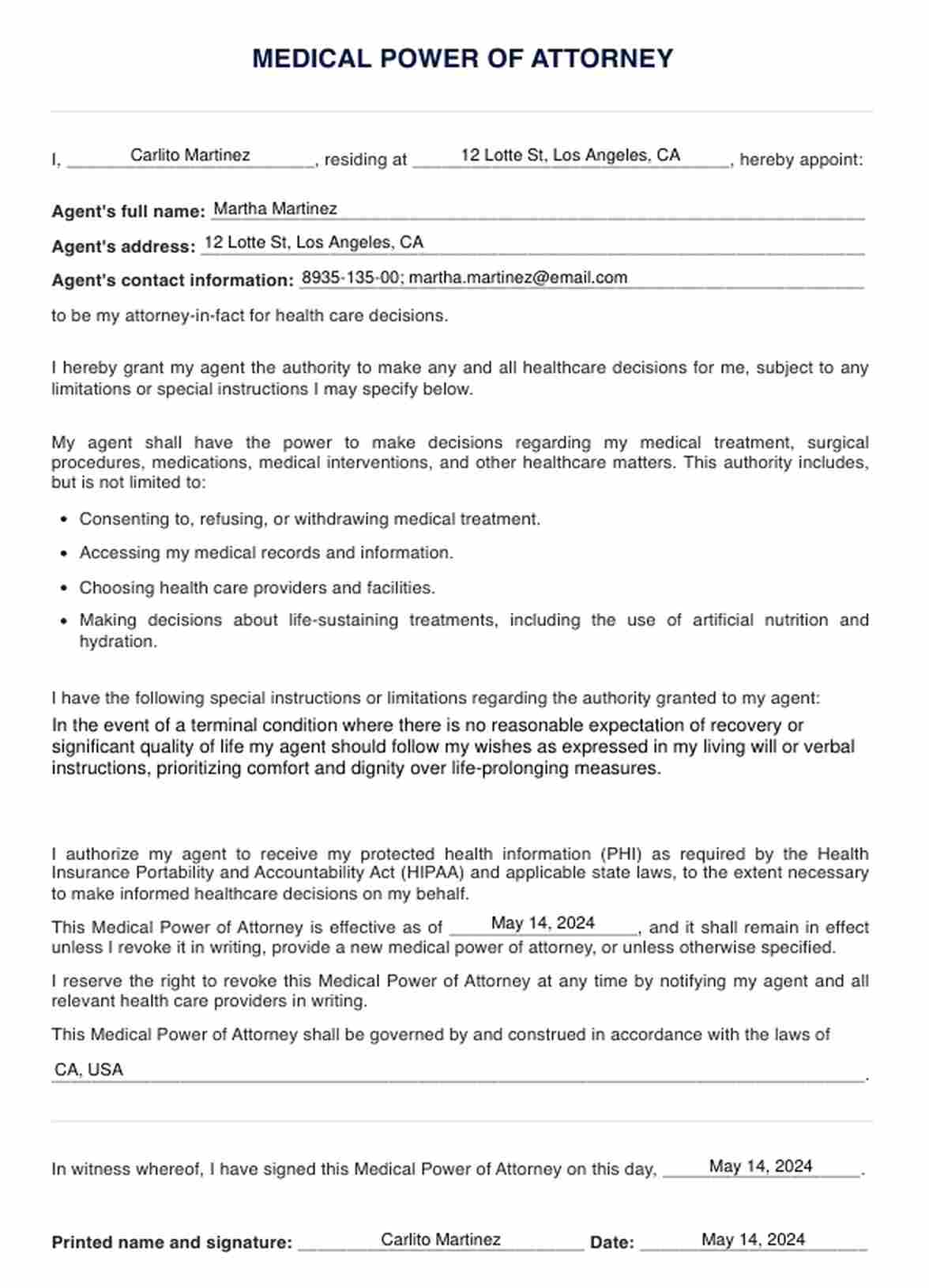What is a Medical Power of Attorney?
A Medical Power of Attorney (MPOA) is a legal document that empowers someone you trust, known as your agent, to make healthcare decisions on your behalf if you’re unable to do so yourself. This could happen due to illness, injury, or other circumstances that impair your ability to communicate or make decisions.
Why is a Medical Power of Attorney Important?
Having an MPOA in place can provide peace of mind for both you and your loved ones. It ensures that your healthcare wishes are respected and that your agent can make informed decisions about your care, even if you’re unable to express them yourself.
Key Elements of a Medical Power of Attorney

Image Source: carepatron.com
A well-crafted MPOA should include the following elements:
1. Appointment of Agent: Clearly designate the person you want to serve as your agent.
2. Scope of Authority: Specify the types of healthcare decisions your agent can make, such as authorizing medical procedures, consenting to treatments, and making decisions about end-of-life care.
3. Duration: Indicate whether the MPOA is effective immediately or under certain conditions, such as if you become incapacitated.
4. Emergency Provisions: Consider appointing an emergency agent to make decisions if your primary agent is unavailable or unable to act.
5. Springing Power: If you want the MPOA to take effect only under specific circumstances (e.g., when you’re determined to be incapacitated), you can make it a “springing” power.
Steps to Create a Medical Power of Attorney
1. Research: Gather information about the laws governing MPOAs in your state.
2. Choose an Agent: Select a trusted individual who understands your values and healthcare preferences.
3. Consult an Attorney: An attorney can help you create a legally sound MPOA that reflects your specific wishes.
4. Sign and Witness: Ensure that the MPOA is properly signed and witnessed according to your state’s requirements.
5. Review Regularly: Periodically review your MPOA to ensure it remains up-to-date and reflects any changes in your circumstances or preferences.
Conclusion
A Medical Power of Attorney is a vital legal document that can provide peace of mind and ensure that your healthcare wishes are respected. By taking the time to create a well-crafted MPOA, you can empower your loved ones to make important decisions on your behalf when you’re unable to do so yourself.
FAQs
1. Can I change my agent at any time? Yes, you can typically modify your MPOA to appoint a new agent or change the scope of their authority.
2. What if I don’t have a designated agent? If you don’t have an MPOA in place, your family members may have to make healthcare decisions for you based on what they believe you would want.
3. Can I create a living will in addition to an MPOA? Yes, a living will can provide specific instructions about your end-of-life care preferences, such as whether you want life-sustaining treatments.
4. Is an MPOA legally binding? Yes, a properly executed MPOA is legally binding, and your agent is obligated to follow your instructions.
5. Can I revoke my MPOA? Yes, you can revoke your MPOA at any time by providing written notice to your agent and any relevant healthcare providers.
Medical Power Of Attorney Template